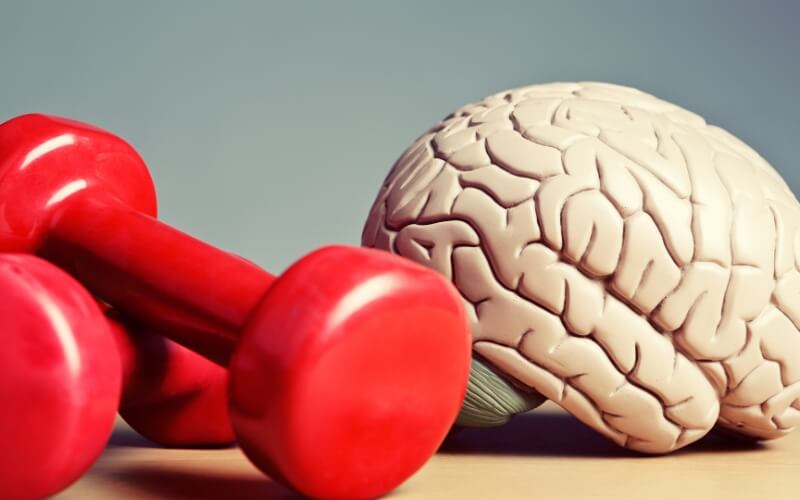Exercise Physiology for Mental Health Exercise.
Exercise is not only about physical fitness, it can also have a profound impact on mental well-being.
Scientific research has consistently demonstrated the positive impact of exercise on various aspects of mental health. These include alleviating symptoms of anxiety and depression, as well as boosting overall mood and cognitive function.

What are the physiological mechanisms driving changes to mental health when we exercise?
The physiological mechanisms underlying these benefits are well-documented.
Every time we exercise it releases endorphins, or bodily transmitters, that act as a natural mood booster and stress reducer.
Physical activity increases serotonin production, which regulates mood, sleep, and appetite.
Further to this, if we exercise consistently, exercise promotes neurogenesis, the growth of new neurons in the brain, enhancing cognitive function and resilience to stress.

And that’s not the mention the lifestyle benefits:
In terms of practical lifestyle benefits, exercise serves as a potent stress reliever, providing a constructive outlet for tension and frustration.
Mental health exercise also boosts self-esteem and confidence through a sense of accomplishment and mastery over one’s body.
Furthermore, it facilitates social connection, which may mitigate feelings of loneliness and isolation.
Can I do any Exercise for Mental health?
Evidence suggests that both the intensity and duration of exercise are key determinants of mental health outcomes.
Moderate intensity exercise trumps gentle exercise in this realm. Moderate to high intensity aerobic exercise, such as brisk walking, jogging or cycling, can particularly reduce symptoms of anxiety and depression.
Generally, guidelines also offer a 150 minute goal per week of moderate intensity exercise. However, it is important to set realistic goals for each individual situation.
High-intensity interval training (HIIT) has emerged as popular approach for improving mood and reducing anxiety levels. HIIT involves short bouts of intense exercises coupled with rest periods. Because of the higher intensity, shorter durations of HIIT can yield similar mental health benefits compared to moderate activity.
To compliment this, strength training exercises, has also been associated with improvements in mood, self-esteem, and overall well-being, and is great to incorporate at least two times per week.

How do I know where to start?
Generally, it is always safe and effective to start slow and build yourself up.
Exercise physiologists play a crucial role in guiding exercise prescriptions for mental health. They tailor exercise programs to individual needs and preferences, considering factors such as fitness level, medical history, and personal goals.
By collaborating with other healthcare professionals, such as psychologists, psychiatrists, and doctors, exercise physiologists help integrate physical activity into comprehensive treatment plans for mental health disorders.
They monitor progress, adjust exercise prescriptions as needed, and provide ongoing support and motivation to help individuals stay committed to their fitness goals.
Final Words:
In conclusion, the evidence overwhelmingly supports the positive impact of exercise on mental health.
By understanding the optimal intensities and doses of exercise for mental health benefits, individuals can access the therapeutic potential of physical activity to improve their emotional well-being and quality of life.
Find out how our experienced Exercise Physiologists can help you.


